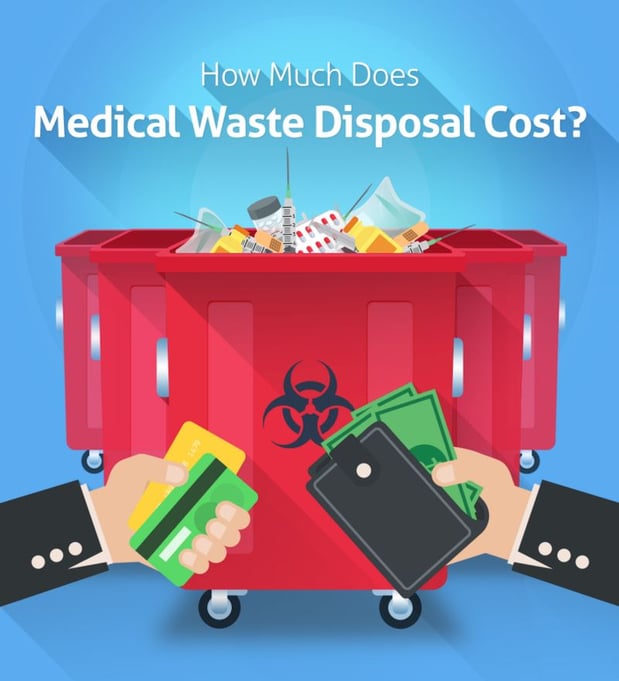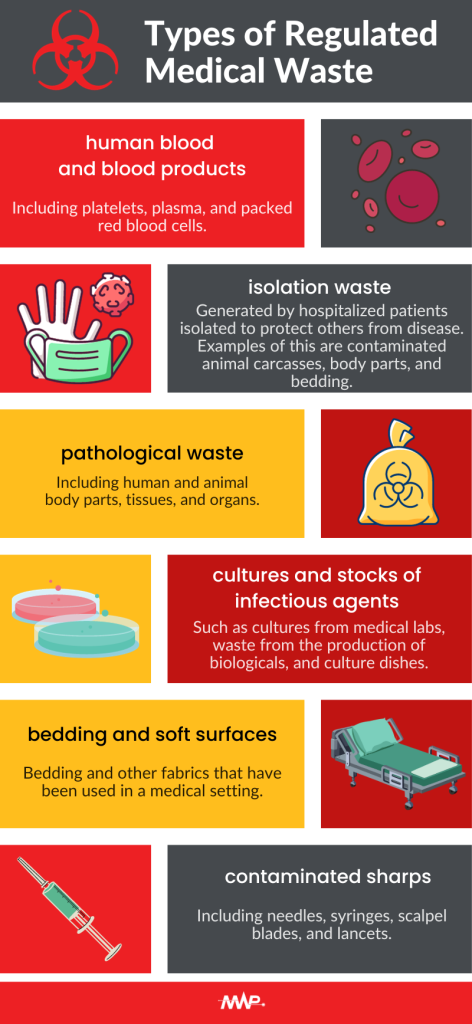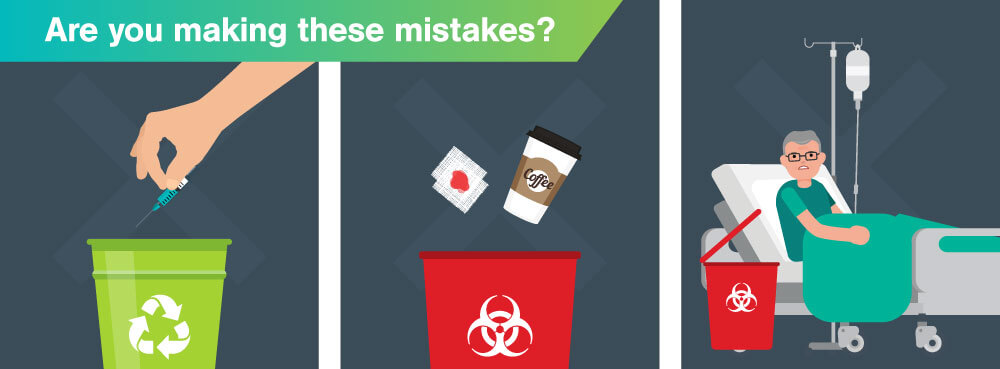Streamlined Medical Waste Disposal Services: Top Priority for Public Health
Streamlined Medical Waste Disposal Services: Top Priority for Public Health
Blog Article
Navigating Medical Garbage Disposal: Essential Services for Healthcare Facilities
In the elaborate landscape of health care procedures, the administration of medical waste is a crucial aspect that demands precise attention. Healthcare facilities, whether large medical facilities or little clinics, are entrusted with the obligation of handling, treating, and throwing away a large variety of clinical waste streams. The intricacies associated with navigating through the governing needs, making sure proper waste segregation, and performing safe collection and transport processes are extremely important. Comprehending the essential services that support clinical waste disposal is not simply a matter of compliance however also a fundamental part in guarding public health and wellness and environmental wellness. The intricacies of this procedure are important for health care centers, and the knowledge offered in this world plays a critical function in keeping the stability of health care systems.
Regulatory Conformity Assistance
For medical care centers, making sure regulatory conformity assistance is vital to keep proper handling and disposal of clinical waste. Sticking to policies stated by organizations such as the Environmental Security Company (EPA) and the Occupational Safety and Health And Wellness Management (OSHA) is essential to protect against ecological contamination, safeguard public health and wellness, and stay clear of possible lawful consequences. Regulative conformity assistance supplies medical care facilities with support on just how to correctly set apart, shop, transportation, and get rid of different kinds of clinical waste based on neighborhood, state, and government guidelines. This support includes assistance in creating and executing comprehensive waste administration plans, carrying out routine personnel training sessions, and carrying out audits to make sure recurring conformity. By partnering with regulative compliance professionals, health care centers can remain updated on developing guidelines, alleviate dangers connected with improper waste disposal, and ultimately contribute to a more secure and extra sustainable atmosphere for all.
Waste Segregation Advice

Medical care facilities should offer clear guidelines and training to staff on how to set apart waste properly. This consists of separating general waste from harmful products such as sharps, transmittable waste, pharmaceuticals, and chemical waste.
Collection and Transportation Services

Proper collection and transport services are crucial parts of the medical waste disposal process in healthcare facilities. These solutions guarantee that dangerous products are managed securely and in compliance with laws to secure both the environment and public wellness. Medical care centers depend on specialized waste monitoring companies to give effective collection and transportation services customized to their requirements.
Medical waste collection involves segregating various types of waste at the point of great post to read generation, using color-coded containers or bags to differentiate in between general, unsafe, pharmaceutical, and other waste streams. Educated personnel have to perform this job to prevent contamination and make sure appropriate disposal. As soon as collected, the waste is transported in specialized vehicles furnished to take care of harmful materials safely. These vehicles stick to stringent security requirements and adhere to designated paths to qualified treatment facilities for disposal with approaches such as incineration, sanitation, or landfilling.
Treatment and Disposal Solutions
In the world of clinical garbage disposal for medical care centers, after the essential stage of collection and transportation services, the focus changes towards implementing effective treatment and disposal remedies. Treatment options often involve procedures such as autoclaving, which makes use of vapor under pressure to sterilize the waste. This method is commonly made use of for transmittable waste that needs to be made non-hazardous before disposal. One more prevalent therapy technique is incineration, where waste goes through high temperatures in controlled settings to lower its volume and eliminate pathogens.
Disposal solutions incorporate the final action in the clinical waste management procedure. Recycling and resource healing are additionally gaining traction as sustainable disposal alternatives for particular kinds of medical waste products.
Efficient therapy and disposal services are paramount in guaranteeing compliance with guidelines and guarding public health and the environment. Healthcare facilities have to carefully assess and choose proper techniques that line up with their waste monitoring objectives and sustainability campaigns.
Team Training and Education And Learning

To successfully handle clinical waste disposal in health care facilities, detailed personnel training and education and learning play a crucial function in guaranteeing adherence to regulatory needs and preserving a risk-free environment. Correct training furnishes staff with the knowledge and skills required to deal with various kinds of medical waste, segregate them correctly, and package them firmly for disposal. By informing view website workers on the risks related to incorrect handling of clinical waste, facilities can reduce the likelihood of crashes, contamination, and regulatory offenses.

Conclusion
To conclude, medical care centers depend on necessary clinical waste disposal services to make certain governing conformity, proper waste segregation, secure collection and transportation, efficient treatment and disposal, in addition to personnel training and education. These services play an essential function in preserving the health and wellness and safety and security of both medical care employees and the basic public, highlighting the relevance of proper management of medical waste in healthcare setups.
For medical care centers, ensuring regulatory compliance support is vital to preserve correct handling and disposal of clinical waste. Waste partition includes categorizing various types of clinical waste to make sure proper handling, treatment, and disposal. This includes dividing basic waste from unsafe materials such as sharps, infectious waste, pharmaceuticals, and chemical waste.Medical waste collection involves setting apart various types of waste at the factor of generation, making use of color-coded bags the original source or containers to differentiate between basic, harmful, pharmaceutical, and other waste streams.In the world of clinical waste disposal for health care facilities, after the essential phase of collection and transport services, the emphasis moves towards implementing reliable treatment and disposal remedies.
Report this page